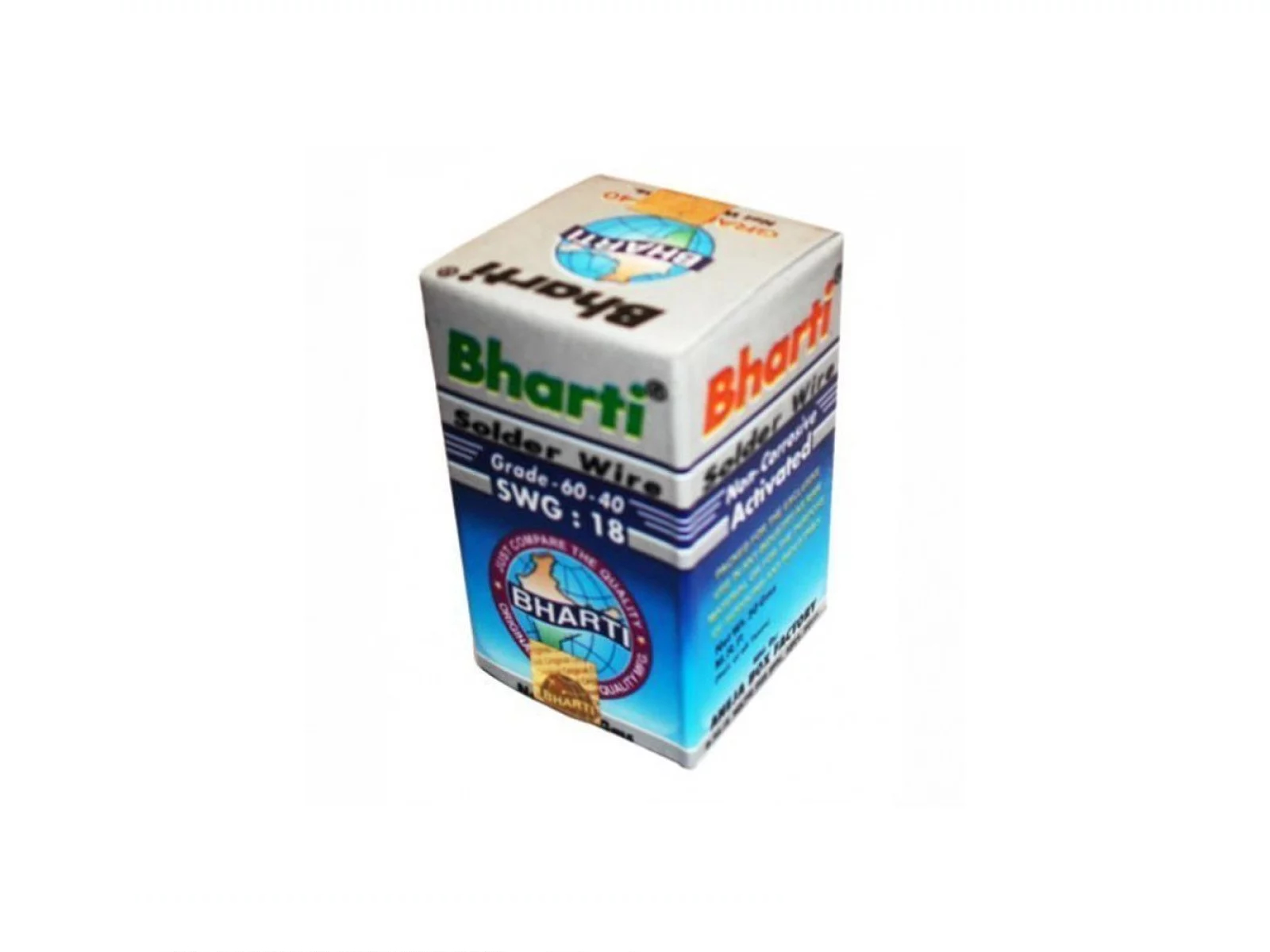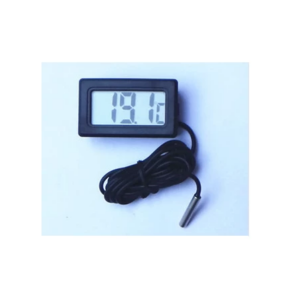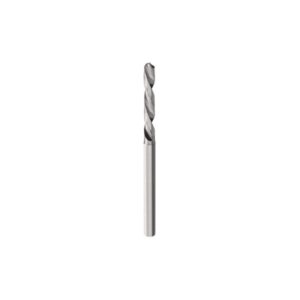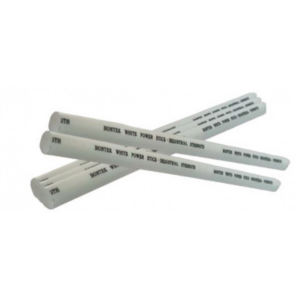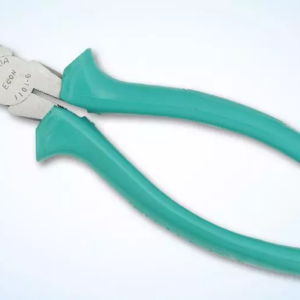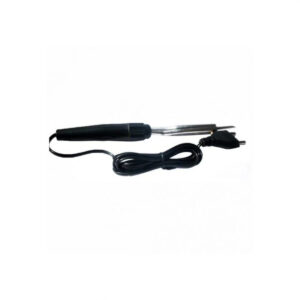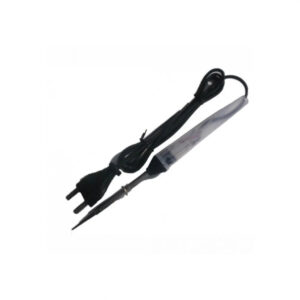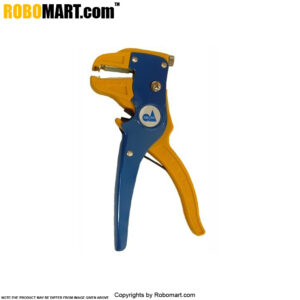Solder is a fusible metal alloy used to join together metal workpieces and having a melting point below that of the workpiece(s). Soft solder is typically thought of when solder or soldering is mentioned, with a typical melting range of 90 to 450 ?C . It is commonly used in electronics, plumbing, and assembly of sheet metal parts. Manual soldering uses a soldering iron or soldering gun. Alloys that melt between 180 and 190 ?C (360 and 370 ?F) are the most commonly used. Soldering performed using alloys with a melting point above 450 ?C (840 ?F) is called brazing.
solder are used at that places where robotic parts does not experiece high forces or pressure change.
Types of Solder
1. Lead solder:
Tin/led solders, also called soft solders, are commercially available with tin concentrations between 5% and 70% by weight. The greater the tin concentration, the greater the solder?s tensile and shear strength. Alloys commonly used for electrical soldering are 60/40 Tin/lead (Sn/Pb) which melts at 370 ?F or 188 ?C and 63/37 Sn/Pb used principally in electrical/electronic work. The 63/37 is a eutectic alloy.
2. Lead-free solder:
Lead-free solders in commercial use may contain tin, copper, silver, bismuth,indium, zinc, antimony, and traces of other metals. Most lead-free replacements for conventional Sn60/Pb40 and Sn63/Pb37 solder have melting points from 5 to 20 ?C higher though solders with much lower melting points are available.
3. Flux-core solder:
Flux is a reducing agent designed to help reduce (return oxidized metals to their metallic state) metal oxides at the points of contact to improve the electrical connection and mechanical strength. The two principal types of flux are acid flux, used for metal mending and plumbing, and rosin flux, used in electronics, where the corrosiveness of acid flux and vapors released when solder is heated would risk damaging delicate circuitry.
4. Hard solder:
Hard solders are used for brazing, and melt at higher temperatures. Alloys of copper with either zinc or silver are the most common.
Feature of soldering wire:
- Halide-free solder wire, and suitable for repair operation
- Used in tin-lead process
- Fast melting,good wetting and expansibility.
- No break for the core,no splash and no odour.
- Good solderability and soldering joints with high brightness and strength
- Good mechanical performance
- Widely used in electronics,lighting,communication,radio,computer,instruments and other field
- Residue is easy to remove by hot air after soldering work if necessary
- Available in many alloy composition,other alloy composition are also available
